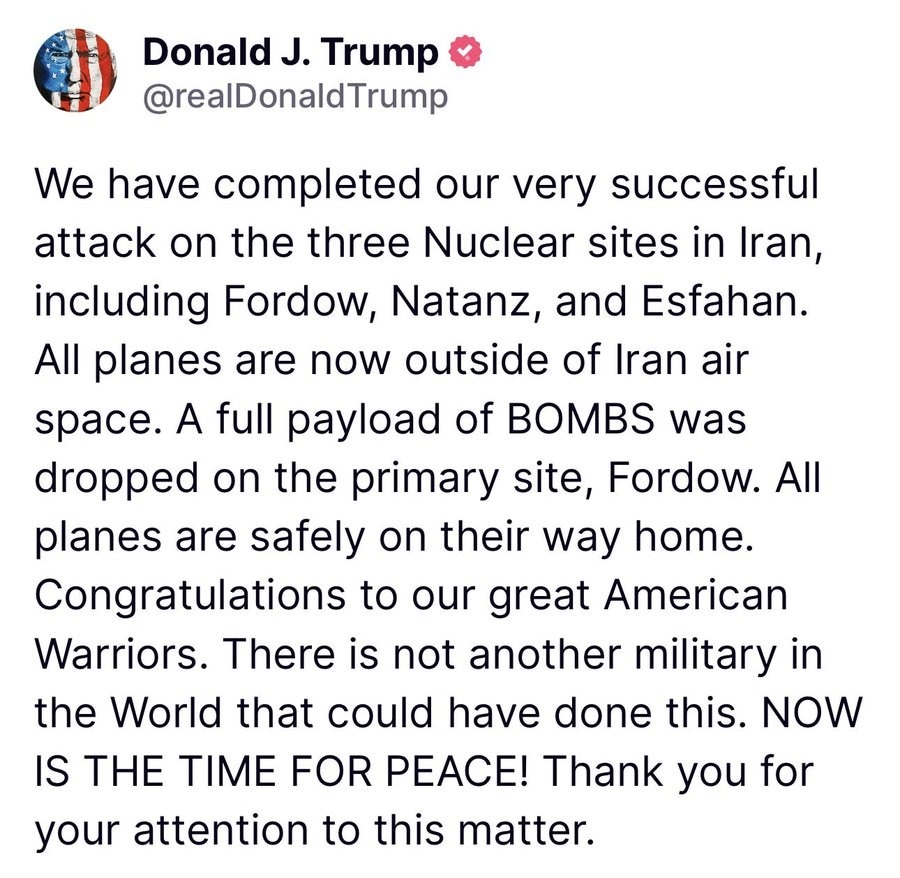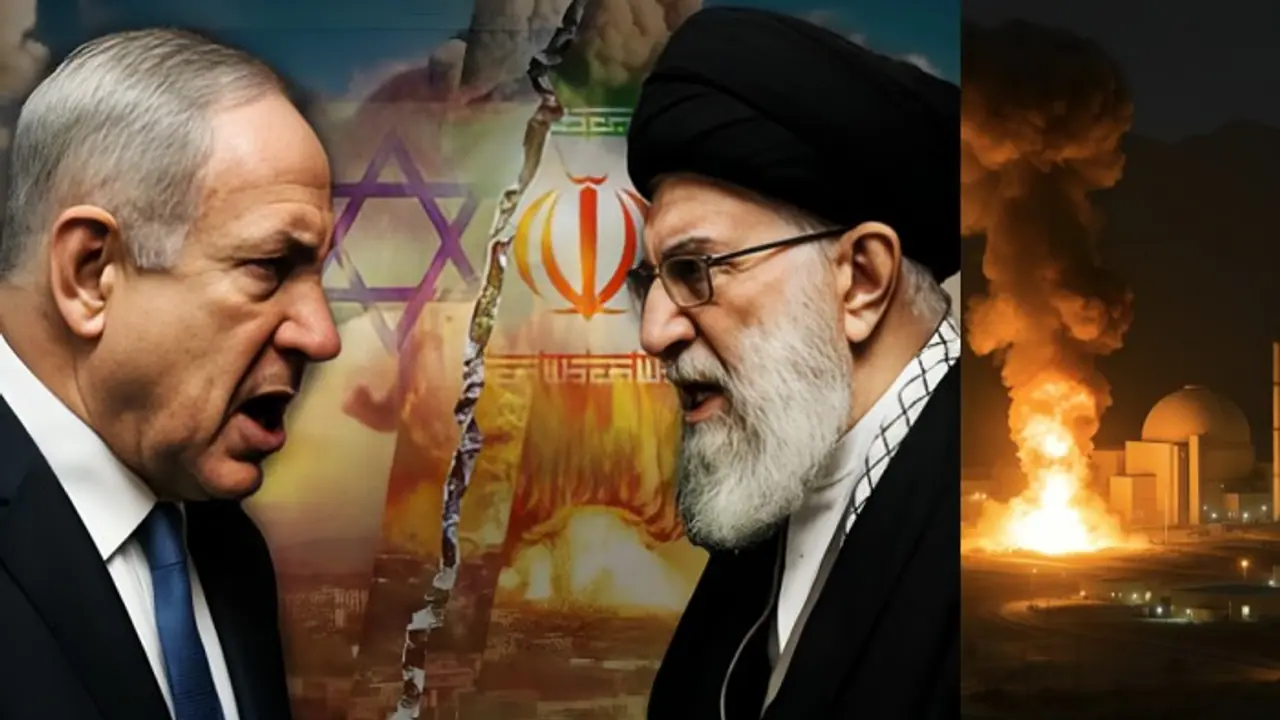Iran launched missiles at Tel Aviv, Haifa, and Ben Gurion Airport, injuring at least 16 people in Israel. Israel responded with airstrikes on western Iran’s military sites.
Iran launched missiles at Israeli cities, injuring civilians and sparking a powerful response from Israel and the US. Panic spread through the Strait of Hormuz as fears of a wider conflict grew.

In retaliation, the Israel Air Force (IAF) launched several airstrikes on military targets in western Iran on Sunday. The strikes came shortly after Iran fired a wave of missiles at Israeli cities, injuring civilians.
In their statement, the IDF said they destroyed missile launchers that had targeted Israel and also struck Iranian soldiers. The IDF confirmed the launchers had been neutralised before they could carry out further attacks.
Panic in Strait of Hormuz after US joins attacks on Iran
The tension in the Middle East rose sharply after the US carried out strikes on Iran's nuclear sites. Following the US attack, panic spread through the Strait of Hormuz, one of the world’s most important oil routes.
Several oil tankers began leaving the area in fear of an Iranian blockade, raising global concerns over oil supply disruptions.
Iran admits missile strikes, targets Israeli airport and cities
Iran has taken responsibility for the missile attacks that hit various locations in Israel, including Ben Gurion Airport. At least 16 people were injured in the two waves of missile strikes, according to Israel's emergency services.
Missiles hit central Israel, including Tel Aviv and Haifa. Alarms were heard across northern parts of the country, and residents were advised to stay in bomb shelters.
Israeli response: Missile launchers and soldiers destroyed
The IDF said the latest wave of Israeli airstrikes destroyed the ballistic missile launchers used in the attacks. Iranian soldiers operating the launchers were also killed.
The Times of Israel reported that the air force hit primed launchers in western Iran. Several of the missiles had already been fired at Israel before the counter-strikes.
Haifa hit without warning, more injuries reported
Israel’s emergency medical service, Magen David Adom (MDA), updated the injury toll. One man was moderately hurt by shrapnel, while 15 others suffered minor injuries.
One of the missiles struck Haifa without any alarm sounding beforehand, raising questions about the warning system’s failure.
Israel condemns Iranian attack on civilians
Israel’s Foreign Ministry strongly criticised Iran’s actions. Spokesperson Oren Marmorstein said Iran had fired ballistic missiles directly at cities where people live.
He shared a post on X which showed damaged residential buildings after the attack.
US targets Iran’s nuclear facilities in joint operation
As Israel responded to the missile attacks, the US also struck Iran’s key nuclear facilities. The targets included Natanz, Isfahan and Fordow, Iran’s main uranium enrichment sites.
CNN reported that six US B-2 bombers dropped massive "bunker buster" bombs, GBU-57 A/Bs, on the underground site in Fordow. A full payload was used to hit the nuclear facility.
Donald Trump's warning to Iran
Speaking after the attacks, US President Donald Trump said more action could follow if Iran refuses to cooperate. “There will be either peace or there will be tragedy for Iran, far greater than what we’ve seen over the last eight days,” Trump said in an address from the White House on Saturday.
In another post on X, he wrote:

The Strait of Hormuz is on high alert, with oil tankers fleeing. President Trump warned of “greater tragedy” if Iran doesn’t agree to peace, raising fears of full-scale war.


